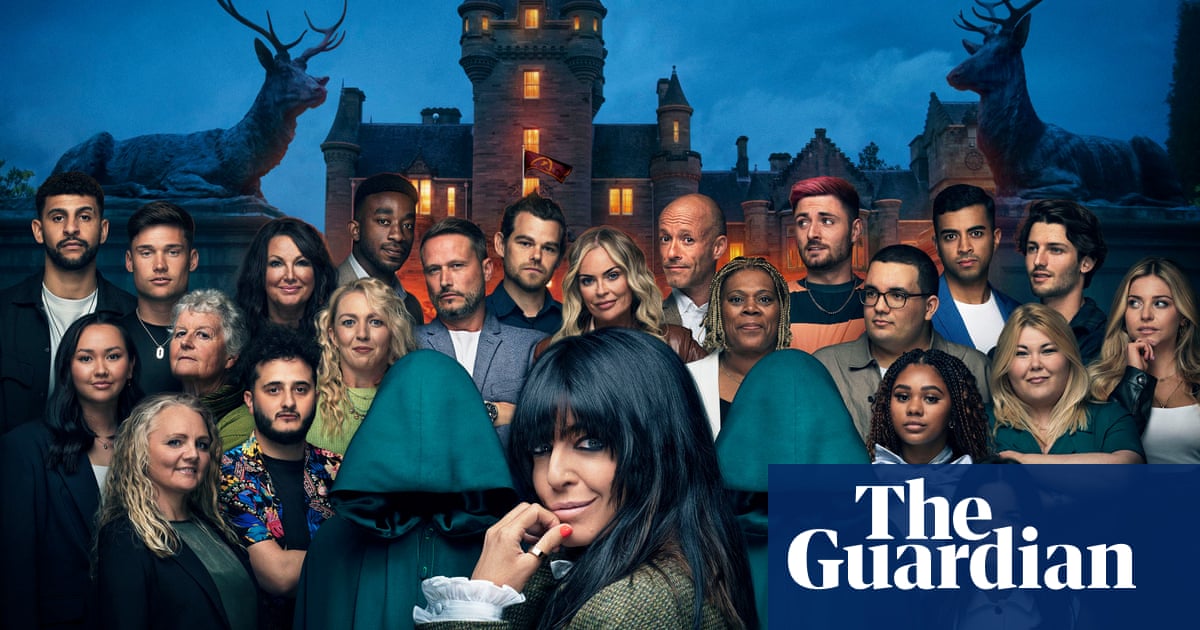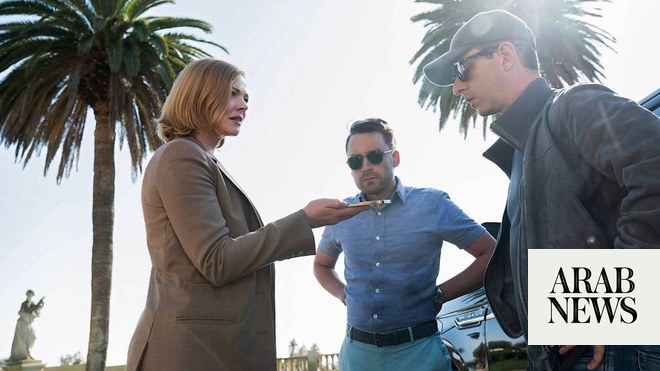
hen the first episode of The Sopranos aired in January 1999, people weren’t sure what to expect. Two months later, in March, Robert De Niro would star in the movie Analyse This, a mafia comedy about a mob boss who, like Tony Soprano, seeks the support of a therapist. But for most people at the time, the worlds of the cosa nostra and mental health had been quite separate. And though Analyze This was a blockbuster, The Sopranos was airing on the cable channel HBO, which boasted only 11 million subscribers at the time.
But The Sopranos was a hit, with its mix of drama, humour, sex and betrayal, and darkly comic undertones. Steve Schirripa, who played lovable gangster Bobby “Bacala” Baccalierri, remembers a conversation he had with the late James Gandolfini, who played the show’s complicated protagonist Tony Soprano. “Jim,” he says in a thick New York accent, “thought it wasn’t going anywhere. He thought he’d shoot the pilot, pick up the money for it and move on to the next thing.”
But audiences were hooked. The frenzy started around season two or three, Schirripa says. “On Mondays, every radio show wanted a character as a guest, and what had happened the night before was on the cover of every newspaper. I don’t remember any show that happened to.”
The Sopranos was “paradigmatic of the moment when television became art and became more complex,” says Dr Jeff Scheible, film and TV lecturer at King’s College London. “One of the innovative things about the show is that Tony Soprano is this immoral character, an antihero,” says Scheible. The first season would go on to win the first of its 16 Emmys and the actors became household names, while the antihero would go on to underpin what we now call “prestige TV’ such as Mad Men, Breaking Bad and Boardwalk Empire.
Flash forward 21 years, and The Sopranos, which ran for six seasons, ending in 2007, has seen a sudden surge of viewers. GQ called it the hottest show of 2020. In the UK, NOW TV reported a 122% increase in views of the title, and in the US, America HBO reported a 200% increase in viewers. Google searches for The Sopranos dwarfed those for other classic series such as The Wire; on two occasions in June and August, there were almost twice as many searches for the former as there were for the latter in the UK, while between 18 and 24 October in the US, people searched for The Sopranos three times as often as they did The Wire.
But why is The Sopranos still so popular? Since the show ended in 2011, and with the untimely death of James Gandolfini in 2013, there has been a concerted effort to keep the show’s legacy alive. Fan-led podcasts such as The Sopranos Show and Poda Bing have existed for some years now, but just as the pandemic forced everyone into their houses, Schirripa and Michael Imperioli (who played Tony Soprano’s heir apparent, the rough-around-the-edges Christopher Moltalsanti) launched Talking Sopranos.
For Schirripa, it was about setting the record straight. “I saw that there were podcasts with people that had nothing to do with the show, they weren’t behind the scenes, how could they know?” he says. For Imperioli, making the podcast was about breathing new life into the series. “Michael realised that a lot of younger people were watching the show and that we were in the podcast generation, [so] people in their 20s who were streaming it would be interested in a podcast, too.” If millennials who were too young to watch the show when it first aired were tuning in now, what better to compliment it than by adapting the show to a format that they engage with?
Among these younger fans is 21-year-old Maya, who goes only by her first name online, and lives in New York. “When The Sopranos first aired I wasn’t born,” she says. She found The Sopranos on Amazon Prime when she was 19. After she had watched all the seasons, and inspired by the humour and dark absurdity of the show, she set up the Twitter account Sopranos Out of Context.
“Out of context” is a social media meme format where users take screen grabs (with subtitles), tweeting pictures without any context of what is happening in a series. By doing so, it creates a shibboleth of sorts: only people who have watched the show will understand and be in on the joke – it would be nonsensical for those that haven’t. Say the infamous Sopranos line: “cunnilingus and psychiatry brought us to this!” to a group and you’ll be met with bemusement from some and knowing laughter from others.
Having started the account in 2018, Maya had amassed a modest 3,000 follower count by June 2020. Then, one day in June, she woke up with 8,000, then 15,000 and has been on an upward trend since then. As of December 2020, the account boasts just shy of 100,000 followers.
June wasn’t an arbitrary month. On 27 May, WarnerMedia’s on-demand platform HBO Max launched in the US, with The Sopranos among its most-watched titles. With younger, social media-savvy audiences seeing the show for the first time, Maya’s Twitter account was primed for a flurry of interest among this demographic. It also helps that show is comically macabre, fitting with that generation’s latent pessimism. “A lot of younger people are watching for the first time and translating the show in the way we speak [by repurposing the quotes], which has shown it in a modern way.”
Some 45% of the people who interact with Maya’s account are from marginalised groups, that is “people of colour, LGBTQ+ and women”. Like me, Maya is a black woman. On paper, it might seem odd that the show attracts superfans belonging to these demographics. The show’s use of racist, misogynistic and homophobic slurs might fit with the hyperreal portrayal of characters, but why have people like us found things here that we can relate to?
“We know he’s in organised crime, not nice to black people and a misogynist, but we have to acknowledge that some of the stuff that happens to him rings true”, Maya says. The brilliance then, of watching the show in 2020 when we’re more accepting and tolerant (though you’d be forgiven for thinking otherwise) is that we’re forced to come to uncomfortable conclusions about Soprano’s actions. “It’s about family as much as it’s about the mob. Tony could have been a plumber and still have had all these problems … maybe without the murder” Schirripa says wryly.
While mental health and addiction were more stigmatised as topics at the time of the show’s first run, they’re now ubiquitous, and as the mental health and opioid crises rage on in 2020, it’s as though we have been playing catch-up to the show. While Schirripa, who is 62, contends that when he “was growing up, there was no therapy, no antidepressants and if there was it was for rich people”, he admits to understanding what he calls “the Melfi stuff” now (referring to Jennifer Melfi, Tony Soprano’s psychiatrist), and people younger than him certainly do. At 21, Maya has been brought up on TV shows that tackle complicated topics like these. For her “it’s nice to watch the show that opened the floodgates”.
They might not be the reason for the show’s success during lockdown, but the themes of isolation, family, trust and betrayal fit a little too well given the state of the world now. Some might find Tony’s fraught and intensely complicated relationship with his mother relatable if they’re locked down with with similar parent difficulties. The isolation and temptation that Christopher feels as the only addict among his peers might ring true for people who struggle to keep at bay the urge to use now. Watching The Sopranos in a lockdown, lines such as: “They say every day’s a gift, but why does it have to be a pair of socks?” have taken on a new, more biting meaning.
“On Sundays,” Schirripa says of the show’s initial run, “people would have parties of 20 people and gather to watch The Sopranos over a big Italian meal.” Partly because not everyone could afford the then-high cost of $16 for HBO, but also because we’re built to want to share experiences and to gather together.
This year hasn’t afforded us the luxury of much socialising, so we have had to make compromises. Being on social media in a lockdown, creates a greater element of allowing people into a community. The Sopranos is a show that, unlike any other of its kind, is perhaps more important now than it was when it first aired. We aren’t able to enjoy big, shared Italian meals of gabagool, branzino or ziti, but there is still so much to discuss as the community of fans gets younger and grows wiser.
As Corado “Uncle Junior” Soprano says, “You steer the ship the best way you know. Sometimes it’s smooth. Sometimes you hit the rocks. In the meantime, you find your pleasures where you can.”












